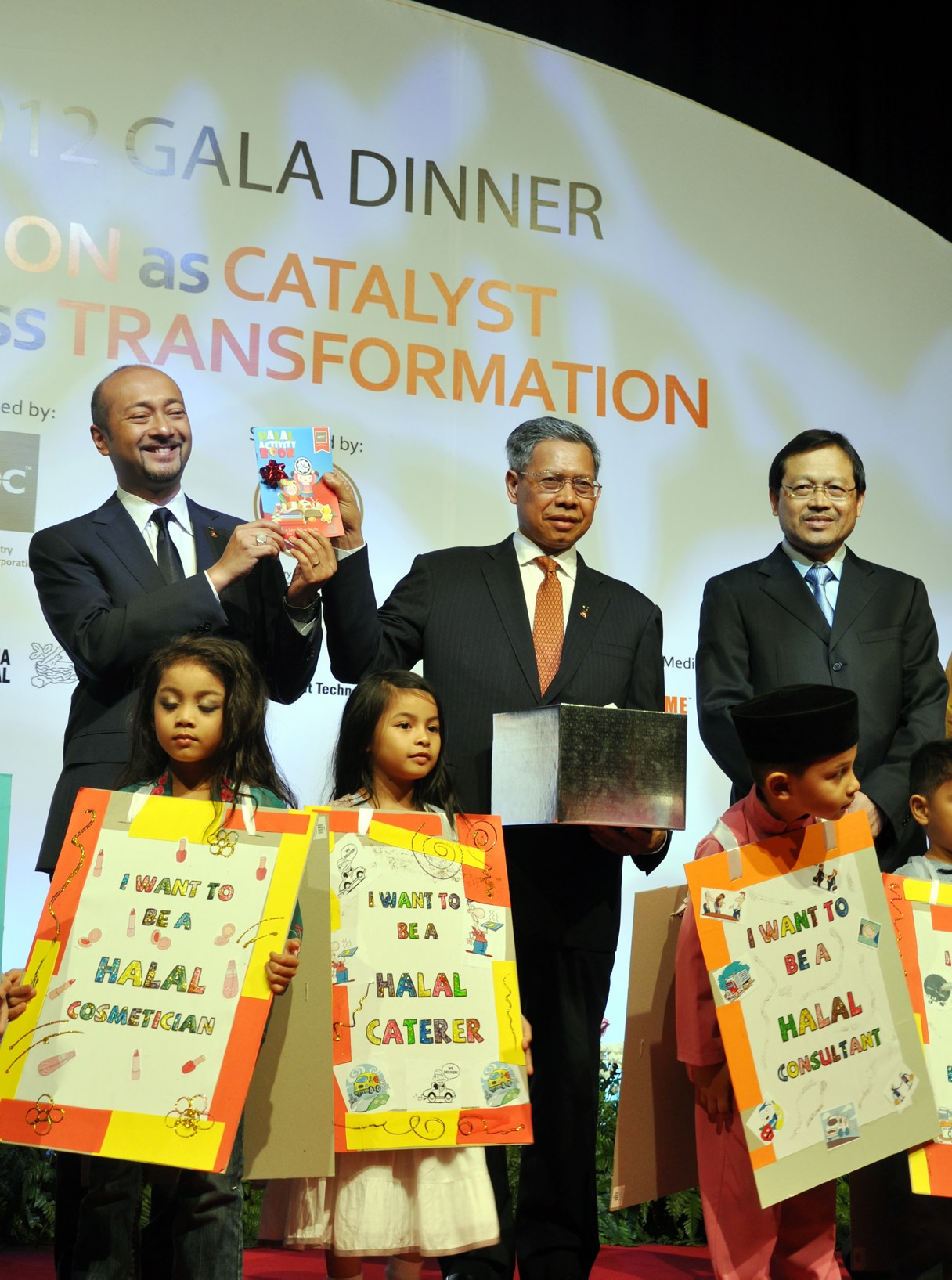ID :
240439
Thu, 05/17/2012 - 06:08
Auther :
Shortlink :
https://www.oananews.org//node/240439
The shortlink copeid
Halal Is More Than A Way To Slaughter Animals

By Sakini Mohd Said
PETALING JAYA (Selangor, Malaysia), May 17 (Bernama) -- The saying goes, "Strike the iron while it is hot." Similarly, when it comes to teaching a child, it is better to start cultivating good values at an early and impressionable age.
This is applicable in many aspects, particularly when one wishes to inculcate a habit or impart some knowledge, such as educating Muslim consumers on halal-related matters.
Realising the importance of early halal education, the Halal Industry Development Corporation (HDC) has published a book under its "Halal Discovery for Young Leaders" programme, aimed at providing halal education to children.
NOT JUST ABOUT THE SLAUGHTER
It is not very difficult for adults to access halal information, which is available from many sources, in print as well as website form.
For children, however, it is a different matter. Many parents teach only the basics of halal education to their children, such as the manner in which permissible foods are slaughtered and their sources.
The scope of the halal concept, however, is vast and needs to be understood in a wider context.
Furthermore, in today’s world, children spend more time away from their parents, whether at school or in tuition classes, which compels them to take “smart decisions” when purchasing their own foods.
"Children understand that they should eat only what is healthy and halal, but it is also important that they understand why they need to do so.
"If the right knowledge on halal matters has been embedded in them in their early years, it will continue to benefit them until adulthood," stated Rohaizad Hassan, Senior Manager for HDC’s Global Halal Support Centre (GHSC).
HALALAN THOYYIBAN
For a product to receive halal certification, it has to go through a screening process that involves verifying its wholesomeness, particularly in terms of cleanliness and safety for consumers. This concept is known as "halalan thoyyiban".
The concept basically stipulates that in awarding a halal certification, the process takes into account not only the halal nature and source of a product, but also its preparation.
This concept needs to be clearly understood, because a substantial number of people are still uninformed about it, let alone children.
Clarifying the matter, the Content Development Manager for GHSC, Marina Muhamad, explained that those who apply for halal certification have to adhere
to several rules set by the Health Ministry.
"(The products) have to be not only shariah-compliant, but also in line with the regulations stipulated by the Health Ministry. Any product that has obtained the halal certification is not only halal, but has also been processed in a hygienic manner and is safe to eat.
"So, if a product from a halal source is processed in a halal manner, using halal equipment, but contains an ingredient that can cause poisoning or disease, it will not be able to obtain halal certification," she added.
HALAL EXECUTIVE
For most consumers, their understanding of halal-related matters is limited to products carrying the halal logo. Very few know about the profession of a "halal executive".
This profession has played an important role in realising the country’s goal of becoming a halal hub. In fact, the Malaysian Islamic Development Department (Jakim) has made it compulsory for every company involved in the halal industry to appoint two halal executives.
What do halal executives do?
According to the Halal Malaysia website, which can be accessed at http://www.halal.gov.my, halal executives ensure the efficient implementation of the internal halal control system.
"There are plenty of professionals, such as chemists, in the cosmetics and pharmaceutical industries. However, those with 'added value' due to their knowledge of halal matters are few.
"This is because only certain universities have made the halal subject a part of their syllabi. Therefore, many graduates who want to venture into the halal field have to take a special course to learn about the subject. At HDC, we facilitate the process by offering the executive programme," Rohaizad pointed out.
A POSITIVE EFFECT
The abovementioned book, which educates young children on the halal concept, also focuses on the halal executive profession's importance in making Malaysia a halal hub.
Children are the target readers for the book, which is published in English and Bahasa Melayu.
According to Rohaizad, the book teaches children about the significance of the halal logo, while increasing their understanding of halal matters and the concept of halalan thoyyiban.
The book, entitled “What is Halal?” is targeted at readers aged seven to nine years.
This creatively and attractively designed book also informs children on careers in the halal industry.
HDC has also published a “Halal Activity Book” for children aged four to six years.
According to Rohaizad, HDC and the Education Ministry are currently discussing the possibility of introducing these books in schools.
If the proposal were agreed upon, some 10,000 children nationwide would be involved in the programme.
"The halal industry will dry up and become exhausted without future leaders to continue driving it. Therefore, HDC - as a body that promotes the halal industry - will focus on educating the children.
"The books will aid our efforts in the long run. There are significant impacts to be expected from educating children, and among them is the creation of many more halal executives in the future," he added.
Trade and Industry Minister of Malaysia Mustapa Mohamed (centre) launched the books, entitled “What is Halal?” and “Halal Activity Book” published by the Halal Industry Development Corporation (HDC). Also seen was Deputy International Trade and Industry Minister of Malaysia Dr Mukhriz Mahathir (left). (photoBERNAMA)
MALAYSIA





